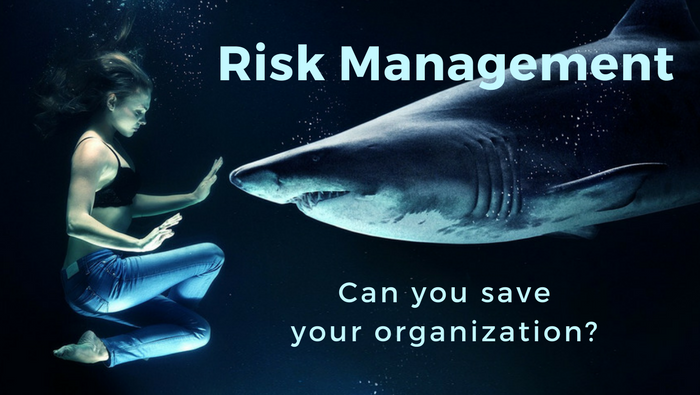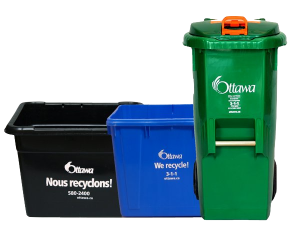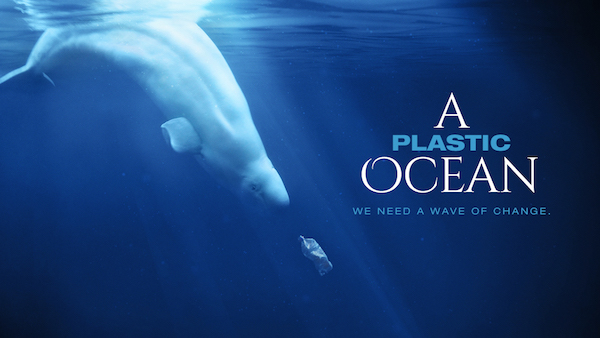![]()
My leadership blog is all about helping current and emerging leaders learn how to transform difficult conversations and dysfunctional workplace relationships into positive and productive ones.


Risk Management: Can You Save Your Organization?
/
At the risk of sounding overly dramatic, I had a truly life-changing experience this past weekend.
/
And it was only when I was thinking about what to write about in this week’s blog post that I came to see how it relates to leadership.
/
And what was this profound experience about?
/
Plastic.
/
Not what you were expecting? Well, me neither.
/
So I’m going to lay this out under three headings:
/
The Backstory
What I Experienced
How it Relates to Leadership
/
/
The Backstory
/
Our household participates in our city’s recycling program. By North American standards, it’s pretty typical:
/
Green Bin ==> organics (mostly food scraps)
Black Bin ==> paper (newspapers, cereal boxes, etc.)
Blue Bin ==> glass, metal and plastic (jars, cans, containers, etc.)
/
We’ve always been fairly diligent about it and our actions left us feeling like we were doing our small part in being environmentally responsible.
/
/
What I Experienced
/
Then, last Friday night, Jen and I watched a documentary on Netflix:
/
/
I found the film to be highly sobering and disturbing.
/
I’m not going to get into all the details of the film here, but what I will share with you is what you need to know in order to see how this relates to leadership.
/
The Plastic Pollution Coalition provides a summary and links to the scientific research regarding all the reasons why plastic is harmful.
/
For my purposes, here’s what I want to highlight:
/
Plastic is poisoning our food chain to an extent that is rapidly increasing — we are all ingesting more and more plastic through our everyday diets.
====
We got to this point due to our unchecked, habitual use of plastic.
====
Ultimately, if this continues, this could be the thing that wipes out the human race.
/
“Did you just say that, Brie?”
/
Well, I imagine your reaction to my bold statement is somewhere between two extremes:
/
“Brie, this is 100% idiotic.”
—————————————–
“Brie, this is 100% true.”
/
And all this might prompt you to investigate this issue for yourself —
or it might not.
/
That’s not the point of this blog post.
/
/
How This Relates to Leadership: Risk Management
/
As a leader, here’s what you need to ask yourself and the people you work with:
/
“Are there any habitual practices within our organization that are causing a slow accumulation of overlooked consequences that:
/
a) are eating away at the health of our organization, and/or
/
b) upon reaching a critical mass, could cause a tipping point that spells the death of our organization?”
/
If you discover such a threat, you can then work to eliminate the habitual practices at the root of it.
/
Changing habits, be they personal or organizational, is hard.
/
Even when you make a firm commitment, devise a plan and put it into action, expect to have setbacks.
/
Just keep your eye on the end goal and keep at it.
/
This is what Jen, our two kids and I are keeping in mind as we work towards our family’s new goal — to eliminate plastics from our lives.
/
We know this won’t be easy. We know we will have setbacks. But we’re going to keep at it.
/
Have a productive and enjoyable day!
/
— Brie
/
Blog Post

Risk Management: Can You Save Your Organization?
/
At the risk of sounding overly dramatic, I had a truly life-changing experience this past weekend.
/
And it was only when I was thinking about what to write about in this week’s blog post that I came to see how it relates to leadership.
/
And what was this profound experience about?
/
Plastic.
/
Not what you were expecting? Well, me neither.
/
So I’m going to lay this out under three headings:
/
The Backstory
What I Experienced
How it Relates to Leadership
/
/
The Backstory
/
Our household participates in our city’s recycling program. By North American standards, it’s pretty typical:
/
Green Bin ==> organics (mostly food scraps)
Black Bin ==> paper (newspapers, cereal boxes, etc.)
Blue Bin ==> glass, metal and plastic (jars, cans, containers, etc.)
/
We’ve always been fairly diligent about it and our actions left us feeling like we were doing our small part in being environmentally responsible.
/
/
What I Experienced
/
Then, last Friday night, Jen and I watched a documentary on Netflix:
/
/
I found the film to be highly sobering and disturbing.
/
I’m not going to get into all the details of the film here, but what I will share with you is what you need to know in order to see how this relates to leadership.
/
The Plastic Pollution Coalition provides a summary and links to the scientific research regarding all the reasons why plastic is harmful.
/
For my purposes, here’s what I want to highlight:
/
Plastic is poisoning our food chain to an extent that is rapidly increasing — we are all ingesting more and more plastic through our everyday diets.
====
We got to this point due to our unchecked, habitual use of plastic.
====
Ultimately, if this continues, this could be the thing that wipes out the human race.
/
“Did you just say that, Brie?”
/
Well, I imagine your reaction to my bold statement is somewhere between two extremes:
/
“Brie, this is 100% idiotic.”
—————————————–
“Brie, this is 100% true.”
/
And all this might prompt you to investigate this issue for yourself —
or it might not.
/
That’s not the point of this blog post.
/
/
How This Relates to Leadership: Risk Management
/
As a leader, here’s what you need to ask yourself and the people you work with:
/
“Are there any habitual practices within our organization that are causing a slow accumulation of overlooked consequences that:
/
a) are eating away at the health of our organization, and/or
/
b) upon reaching a critical mass, could cause a tipping point that spells the death of our organization?”





